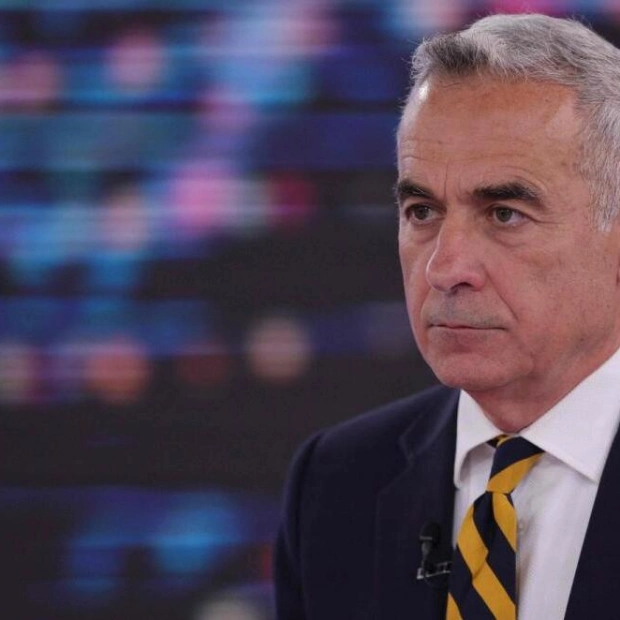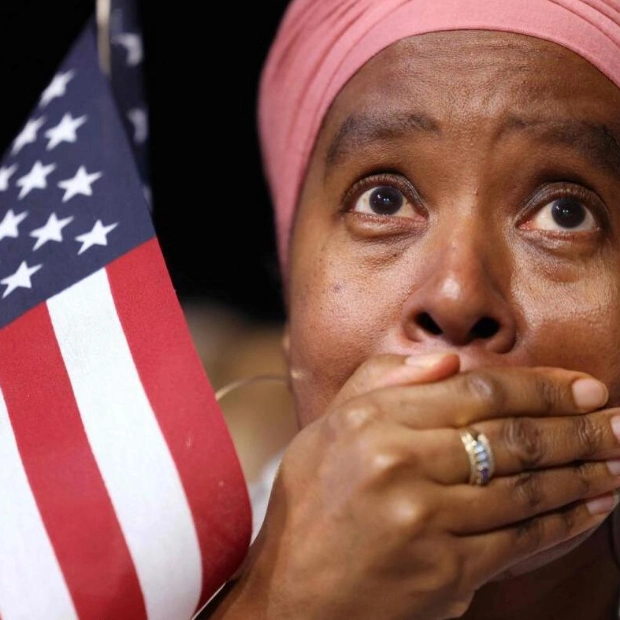Displaced individuals who escaped from the Aleppo countryside congregate near tents in Tabqa, Syria, on December 3, 2024. — Reuters
Syrian government forces initiated a counteroffensive against Islamist-led rebels near the strategic city of Hama on Wednesday, following a series of devastating setbacks, according to a war monitor. Hama, situated in central Syria, is crucial for the army as it safeguards the capital and political hub, Damascus. The clashes around Hama ensued after a rapid offensive by the Islamist-led rebels, who swiftly seized large areas under President Bashar Al Assad's control. A significant achievement for the rebels since the offensive began last week was the capture of Aleppo, Syria's second-largest city, which had remained under government control throughout more than a decade of conflict.
In Aleppo, a medical student informed AFP that hospital staff were largely absent, operating at half capacity. "We attempt to manage emergency cases arriving at the hospital, using medical supplies judiciously," he said anonymously. While the rebels encountered minimal resistance earlier in their offensive, the fighting around Hama has been particularly intense. Hama was the site of a massacre by Assad's father's army in the 1980s, targeting individuals suspected of loyalty to the banned Muslim Brotherhood. The scars of this massacre, which led thousands of Syrians into exile, remain unhealed, and Hama was also a focal point of early protests during the pro-democracy uprising in 2011 that ignited the civil war.
By Tuesday, rebel forces had reached the outskirts of Hama city, according to the Syrian Observatory for Human Rights monitor, as the conflict triggered a wave of displacement. AFP images depicted people fleeing the town of Suran, between Aleppo and Hama, many carrying their belongings in their vehicles. The Britain-based Observatory reported that "regime forces launched a counterattack" in Hama province on Wednesday with air support against the Hayat Tahrir A -Sham (HTS) rebels and their allies. Government forces managed to push HTS back by about 10 kilometers from the provincial capital, the Observatory stated, noting fierce battles as rebels failed to capture an area near the city. Syrian state news agency Sana also reported the battle around Hama, stating that the army was conducting operations against "terrorist organizations" in the northern part of the province.
Wassim, a 36-year-old delivery driver residing in Hama city, described the sounds of the conflict as "truly terrifying, with continuous bombing clearly audible." "I'll remain at home because I have nowhere else to flee," he said. Although Hama city was a stronghold of opposition to Assad's rule early in the war, the province also houses a substantial Alawite community, followers of the same Shia Islam sect as the president. The rebels commenced their offensive on November 27, the same day a ceasefire took effect in the war between the Israeli military and Lebanese armed group Hezbollah. Iran-backed Hezbollah, a key supporter of Assad's government, earlier in the war helped sustain his rule but suffered a series of setbacks in its year-long conflict with Israel, which began after Hezbollah launched cross-border attacks in support of its Palestinian ally Hamas. During the war in Lebanon, Hezbollah had to withdraw some of its fighters from Syria to focus on its home front.
Russia has also been pivotal in maintaining Assad's power, directly intervening in Syria's war in 2015, but it is currently entangled in its own war in Ukraine. Nevertheless, the Russian air force is conducting joint airstrikes with the Syrian military, including in Hama province, according to the Observatory. Russia, Iran, and Turkey are in "close contact" regarding the conflict in Syria, Moscow stated on Wednesday. While both Russia and Iran support Assad, Turkey backs the opposition. Until last week, the war in Syria had been relatively dormant for several years, but analysts predict that violence will inevitably escalate as the conflict was never fully resolved. According to the United Nations, 50,000 people have been displaced by the recent fighting since it began last Wednesday. The Observatory reports that the violence has resulted in 602 deaths, mostly combatants but also 104 civilians. Since 2011, Syria's war has claimed over 500,000 lives and forced millions more to flee their homes. Many of those who participated in the initial protests that sparked the war are now deceased, imprisoned, or living in exile.
"Many policymakers believed, well, Assad won, there is no war," said Rim Turkmani, director of the Syria Conflict Research Programme at the London School of Economics. But "we've been concerned about this for years, that the absence of intense violence doesn't signify the conflict is over," she told AFP. While the rebels may have advanced rapidly, it does not guarantee they will be able to maintain control over the territory they have captured. Leading the rebel alliance is HTS, which is rooted in Syria's Al Qaeda branch. "It's very well organized, very ideologically driven," Turkmani said. "However, they spread very quickly and very thinly. And I think very soon they'll realize it's beyond their capacity to maintain these areas and, most importantly, to govern them."
Source link: https://www.khaleejtimes.com






